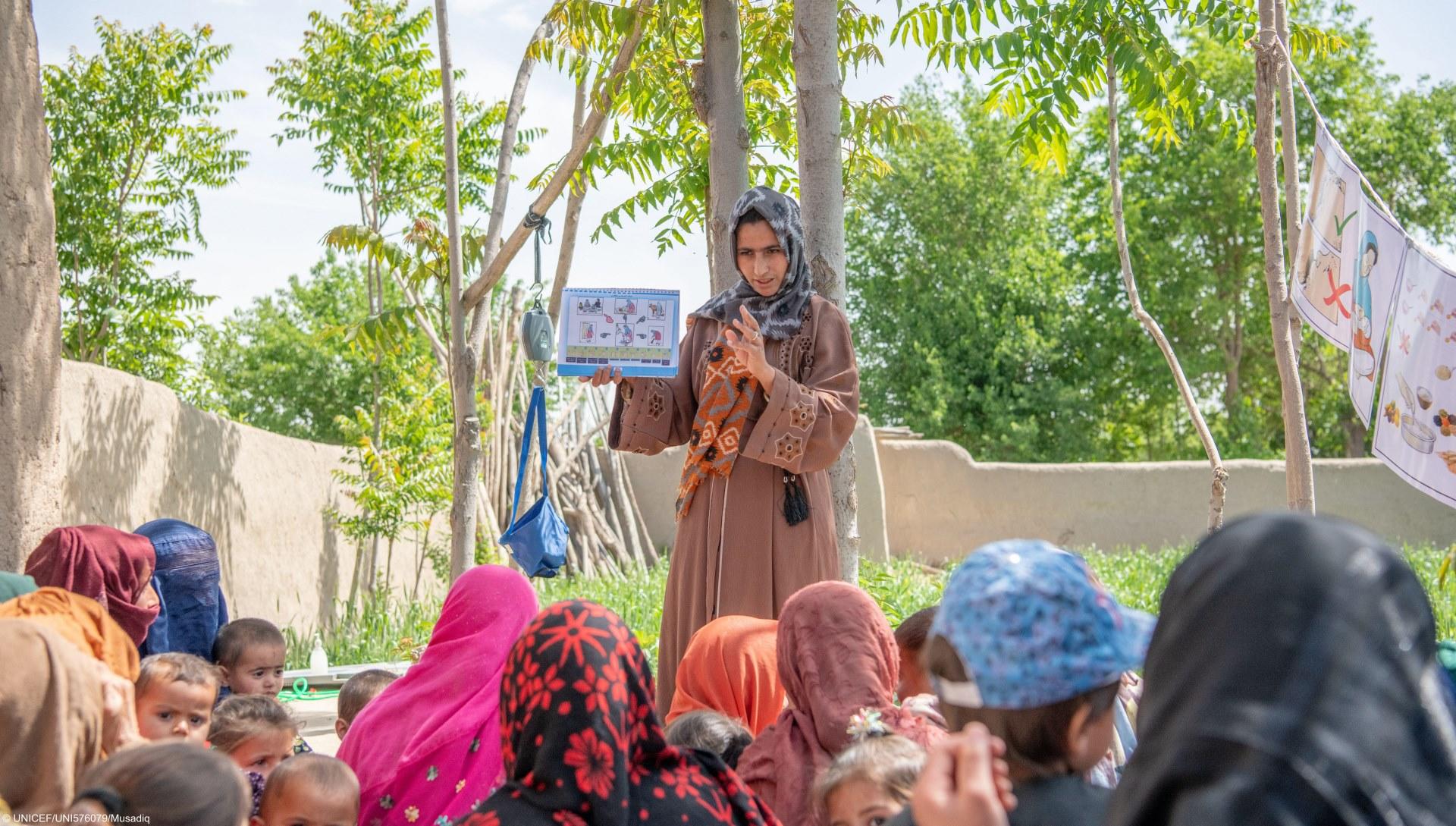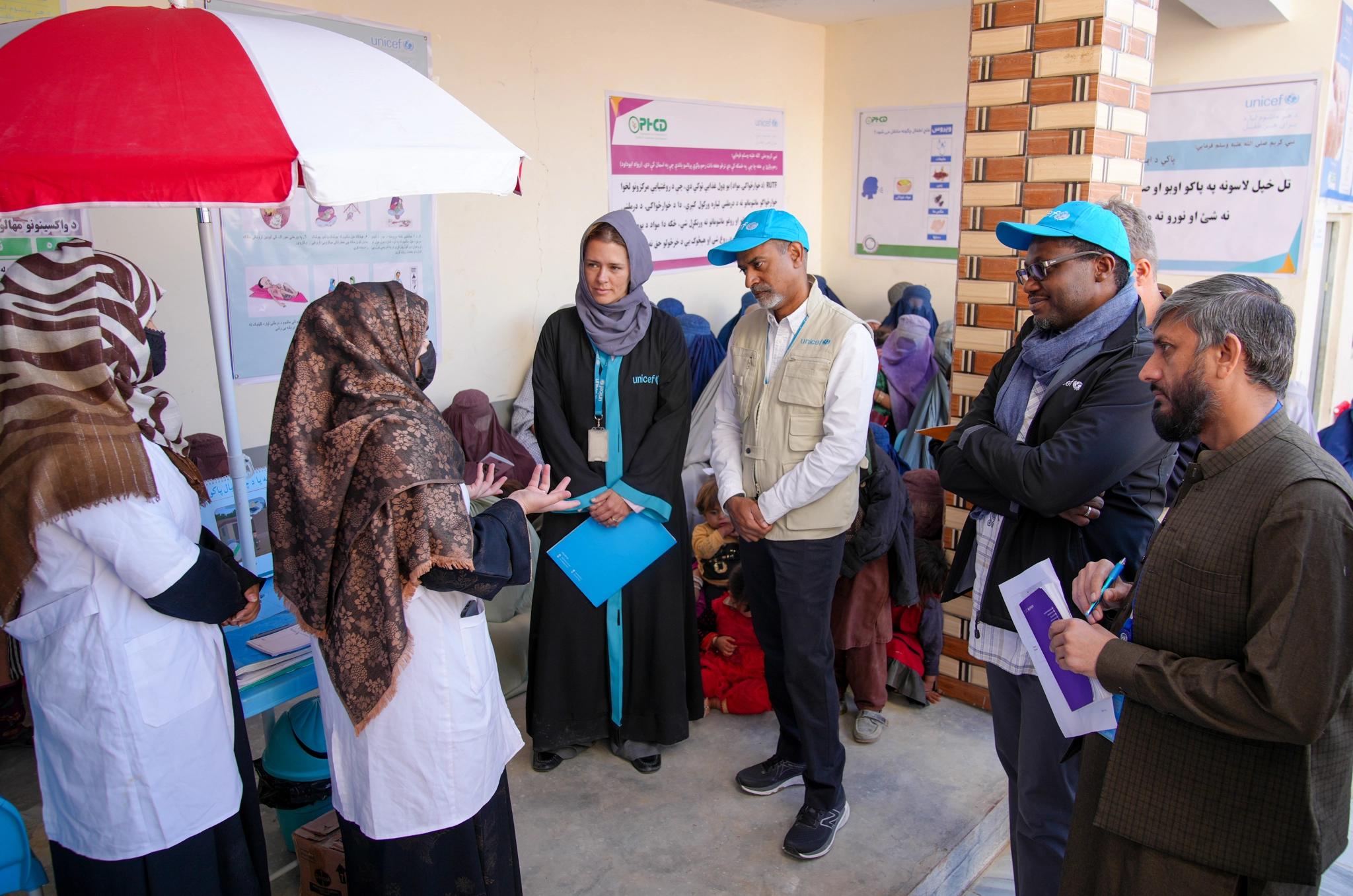Breaking the Cycle: How Integrated Services Are Accelerating Polio Progress in Afghanistan

In Afghanistan, the path to polio eradication is no longer siloed—it is integrated, people-centered, and rooted in the broader system of care. Through health camps and frontline outreach, vaccination is now delivered alongside essential services like nutrition, hygiene, and outpatient support. This shift toward Integrated Service Delivery (ISD) is transforming community trust—and helping close immunity gaps in the most underserved areas.
Building Trust Through Networks That Reach Every Home
In early 2025, the SBC team in Afghanistan mobilized a nationwide trust network of community influencers to create a more enabling environment for immunization.
- Over 9,000 influencers—including elders, teachers, youth, and religious leaders—helped deliver culturally relevant messages on polio.
- More than 80,000 health education sessions, led primarily by female vaccinators, reached close to 1 million caregivers.
These efforts extended far beyond numbers. They represented growing confidence in the system and reaffirmed that frontline trust is central to public health success.
A Wake-Up Call from the South
During a January campaign in the Southern Region, a health worker encountered a distressed family whose newborn had recently received OPV but was now critically ill. Rather than dismissing their fears, the worker accompanied them to a hospital. The child was diagnosed with severe malnutrition—unrelated to the vaccine but critical to her overall health.
This incident underscored a fundamental challenge: vaccines alone are not enough. Malnourished or immunocompromised children may not develop adequate immunity. Without addressing nutrition, sanitation, and access to care, the fight against polio remains incomplete.

Photo: UNICEF staff and health partners engage with female health workers during a visit to a Kandahar health camp, where polio vaccination is integrated with nutrition and hygiene services. © UNICEF Afghanistan
Polio Eradication Needs More Than Just Vaccines
This case is not an isolated incident. It is a stark reminder that while vaccination is a powerful tool in the fight against polio, it cannot be the only one. Malnourished children, deprived of essential nutrients from birth, are less likely to develop the immunity they need—even with vaccines in their system. Poor sanitation and unsafe drinking water only exacerbate their vulnerability.
The path to polio eradication requires a holistic approach. This is why Integrated Service Delivery (ISD) is important. We must scale up efforts to integrate Polio Eradication Initiative (PEI) activities with Routine Immunization (EPI), Nutrition, and Water, Sanitation, and Hygiene (WASH) interventions.
The Power of Integration: A Game-Changer for Child Survival
Across various regions, efforts to link polio vaccination with routine immunization, WASH, and Nutrition services have begun to yield results. In Kandahar's health camps, health workers don’t just provide polio drops, but they also check for malnutrition, promote breastfeeding, distribute hygiene kits, and educate families on safe water use.
In Kandahar, health camps are bringing ISD to life:
- 64,000 children vaccinated against polio
- 136,000 outpatient consultations provided
- 18,000 mothers and children screened and referred for malnutrition
- 280,000 caregivers reached with targeted health education
These camps offer more than polio drops. They promote breastfeeding, distribute hygiene kits, refer families for nutrition care, and educate on water safety—all in one visit. This integrated model is strengthening both health outcomes and trust in the system.

Photo: Mothers and children gather at a health camp in Kandahar to receive vaccines, hygiene supplies, and malnutrition screenings—all in one visit under the Integrated Service Delivery model. © UNICEF Afghanistan
A Smarter, Stronger Way Forward
With Afghanistan and Pakistan remaining the final polio-endemic countries, ISD offers a roadmap for what must come next. By addressing the structural and social barriers that block immunity—poverty, misinformation, and access—Afghanistan is proving that innovation at the local level can drive global impact.
“We must reimagine our approach to polio not as a vertical effort, but as part of a wider system of care. That’s how we protect children—today and for generations to come.”
Discover how digital innovation and co-creation are shaping Afghanistan’s polio response
In May, Afghanistan advanced a key step in strengthening polio communication. A two-day co-creation workshop in Kabul helped localize the global DCE strategy—shaping approaches to engage fathers, empower youth, and use platforms like WhatsApp for real-time outreach. This complements wider SBC efforts to build trust and reach every family.

